How to Install Ssl Certificate Private Key Windows
Your website is more than just a digital billboard – it's a data highway between your business and your visitors. Anytime a visitor accesses your website, data, like their IP address, gets transferred from one server to another before it reaches its destination. Your visitors expect your company to keep that data secure. Without a secure connection, the data they share with you is at risk of falling into the wrong hands – compromising their privacy – which could mean steep consequences for your business. How do you protect your users, prospects, and customers as they browse? (And your company, along the way?) The answer is a Secure Sockets Layer. Secure Sockets Layer (SSL) is a security protocol that creates an encrypted link between a web server and a web browser. It ensures that all transferred data remains confidential. You may have noticed the lock icon next to the URL in your address bar. That means the site is protected by SSL. Your site should have SSL, especially if you process financial transactions. This added layer of security will protect you from data breaches, and it gives visitors a good reason to trust you with sensitive information. Not to mention, SSL improves your ranking in search results. More of a visual learner? Check out this quick video on what SSL is and why you need it: Ready to dive a little deeper? Let's do it. SSL Certificates can be a bit complicated to understand with all the technical jargon and acronyms. To give you a simple but accurate overview of how SSL Certificates work, let's imagine our friend Michelle is visiting her favorite website, hubspot.com. Initially, Michelle opens her laptop and types "hubspot.com" into her web browser, Google Chrome. While Google Chrome is loading the site, Michelle's computer receives HubSpot's SSL certificate through a public key and verifies it with the certificate authority. Michelle's computer and HubSpot's server come to an agreement that everything looks legitimate, and the two computers form a connection which is called a handshake. From here, Michelle's computer and the hubspot.com server decide on the type of encryption they'll use to securely transmit data back and forth. What makes this connection secure is the coding and decoding of information while it is in transit between the computer and the server. The timeframe where security attacks are prone to happen is when the data is moving from one place to the next, so scrambling the information in an encrypted language, or private key, keeps everything secure until it gets where it needs to be. Once the data is decrypted by Michelle's computer by the private key, a lock icon appears next to the website's name in the browser's search bar. Michelle is free to browse hubspot.com knowing that any data she shares is safe and won't be intercepted by malicious hackers. The cost of your SSL can range from free to hundreds of dollars, depending on the level of security you require. Here are the types of SSLs ranging from least secure to most secure (and, generally, lowest to highest in price): The type of SSL you chose depends on what types of actions you expect users to take on your site. SSL certificates can be expensive if you don't know where to look or what you're buying. Once you choose the type of certificate you require, you can then shop around for Certificate Authorities that offer SSLs at that level. Here are the steps: If you require a lower level of encryption for a blog or business site that doesn't transfer sensitive financial information, the following authority will get the job done: If you have content hosted on HubSpot's CMS, you can secure your content and lead data with a free standard SSL.Because we know you're busy, HubSpot takes care of renewal for you.Your SSL certificate will automatically renew 30 days before it expires. Price: 14-day free trial, $270 - $900 per month Let's Encrypt was created by the Linux Foundation, and the project was sponsored by Mozilla, Site Ground, Cisco, Facebook, Akamai, and other top tech companies. It offers DV SSL certificates (no OV or EV here) free of cost, but you should be aware that these certificates are only valid for three months at a time and should be renewed every sixty days at the earliest. Why? The company has a firm stance on automatic certificate renewals to achieve their long term goal of moving the web from HTTP to HTTPS. Price:Always free for three months at a time. Then you must renew, for free, for another three months. Comodo offers 90-day free trials for SSL certificates, and they're recognized by all major browsers. You can cover up to 100 domains with a single certificate. It's specially designed for MS Exchange and Office servers. Comodo offers unlimited server licenses with priority phone support. And, most importantly, Comodo is certified as a Best Seller of SSL certificates. Price: $125 - $845 per year when you purchase a 5-year subscription duration Cloudflare is known for their products that make websites faster and more secure. It's a CDN and security company that's used by many popular sites, including Reddit, Mozilla, and Stack Overflow. Cloud Flare blocks millions of attacks every day and provides 24/7 support. Price: $0 - $200 per month SSL For Free is a nonprofit certificate authority, and it works on all major browsers. Similar to Let's Encrypt and other SSL certificate authorities, SSL For Free offers certificates that are valid for three months at a time. Price: Always free for three months at a time. Then you must renew, for free, for another three months. You've heard of GoDaddy — with over 60 million domains, it's the world's #1 name registrar. If you have an open-source project, GoDaddy will provide you with a free SSL certificate that's valid for a year. Price: $63.99 - $149.99 per year GeoTrust offers a full range of DV, OV, and EV SSL certificates, and automated domain name validation is included with each one. They're known for having easy installation and speedy issuance of certificates and being compatible with leading desktop and mobile browsers. Price: Free for 30 days, then $149 - $745 per year GoGetSSL is another public SSL certificate provider. It gives you a 90-day free trial for SSL certificates, and it only takes about five minutes to get your domain validated (no callback or face-to-face verification required). Their certificates are compatible with all major browsers, such as Chrome, Firefox, Opera, and Safari. Price: $4.43 - $839.88 per year with multi-year subscription durations Instant SSL is another option that deserves your attention. Their free certificates are good for 90 days, and they work on all major browsers. Unlimited server licensing, 24/7 support, and unlimited re-issuance are among the features included in their SSL certificate options. Price: $125 per year and up Basic SSL also offers a 90-day trial before you make a purchase. With a quick and simple validation process, you can focus on other aspects of your website while Basic SSL takes care of the certificate for you. Price: Free for 90 days Browsing the web has its risks, but it doesn't have to when users visit your site. With an SSL certificate from a reputable company, your website can safely and securely handle data transfers between your customers and your business. With a visible lock icon in the search bar, your site visitors know they can trust your business. In the end, this creates a better user experience, increases your website's ranking in search results, and ultimately helps your business operate to industry security standards. This blog post was originally published May 20, 2020 and was updated January 11, 2020.

What Is an SSL?
How SSL Certificates Work
Verification
Handshake
Encryption
Authentication
How much is an SSL?
How to Get an SSL Certificate
Best Free and Low-Cost SSL Certificate Authorities
1. HubSpot
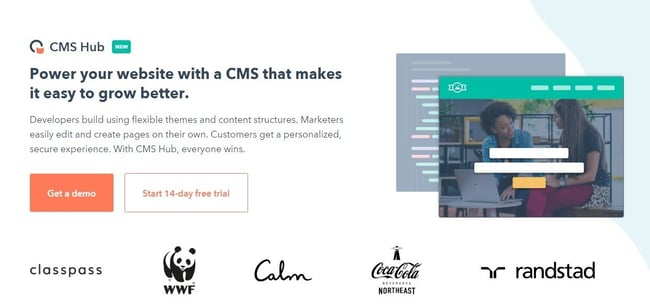
2. Let's Encrypt
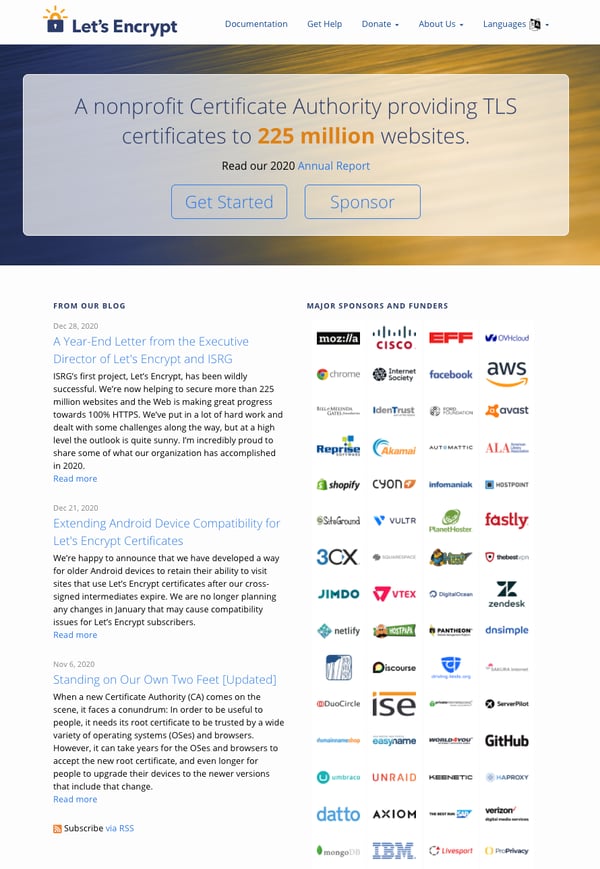
3. Comodo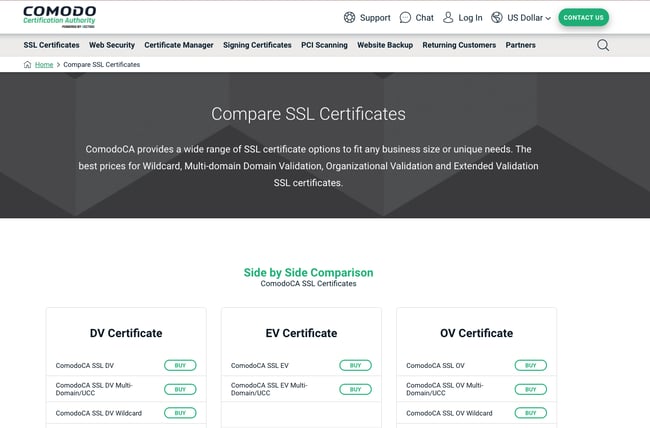
4. Cloudflare
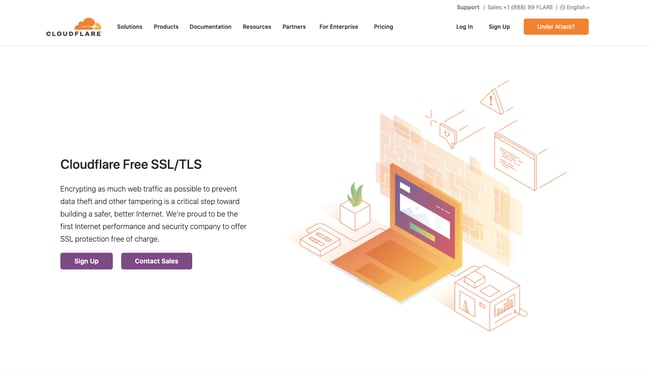
5. SSL For Free
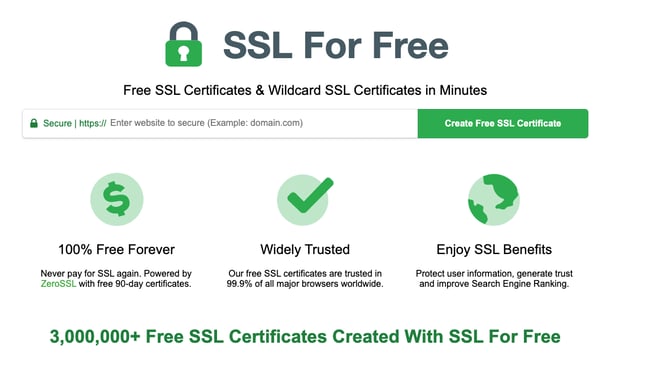
6. GoDaddy

7. GeoTrust
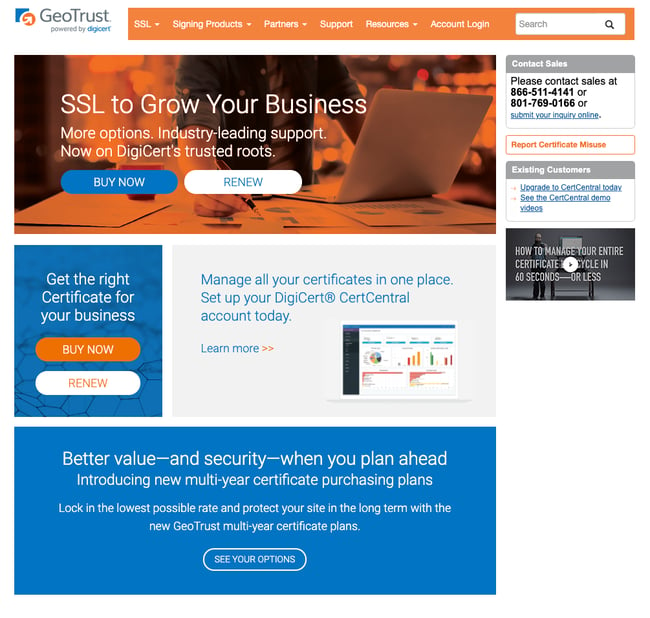
8. GoGetSSL

9. Instant SSL

10. Basic SSL
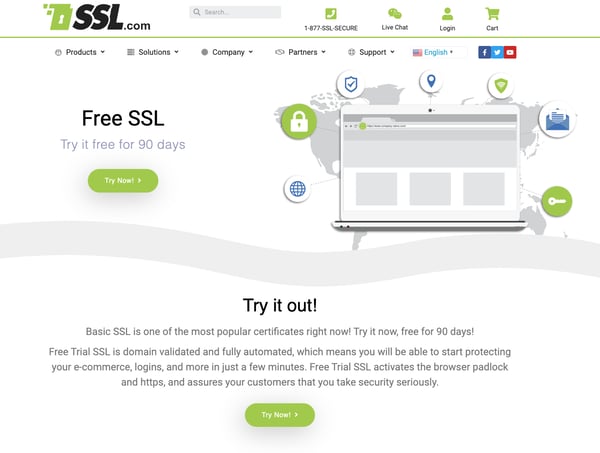
Protect your customer's experience on your website.

Originally published Jan 19, 2021 7:00:00 AM, updated July 13 2021
How to Install Ssl Certificate Private Key Windows
Source: https://blog.hubspot.com/website/best-free-ssl-certificate-sources